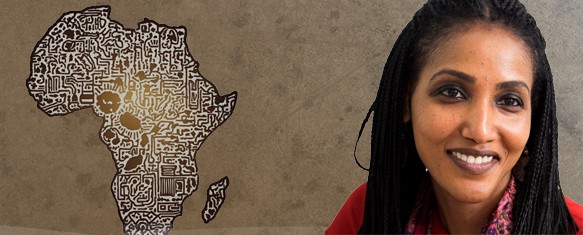
Lire en français
Nature, in collaboration with the Davos Alzheimer’s Collaborative (DAC) and the Aga Khan University, will host The Future of Dementia in Africa: Advancing Global Partnerships conference in Kenya in September 2024.
Nature Africa spoke to Mie Rizig, a clinical senior research fellow at University College London, and conference Scientific Committee member, about how the event will provide a platform to unite scientists and communities, in the search for accessible solutions.
Why host this conference in Africa, and what is the urgency?
There isn’t even a word for dementia in some African languages. Without a name for a condition, how would you even be able to identify it? Rather than benefiting from early interventions and treatments, older people are simply expected to experience degeneration in cognitive function as a normal part of the ageing process. Africa is very exciting for researchers, not least because its diversity and demographics are unparalleled globally and its comparatively younger population offers opportunities to deliver critical new insights to inform policymaking and guide strategic funding. The benefits of raising awareness could be immense, especially considering the current global shift towards supporting brain health initiatives on the continent. These are aimed at strengthening Africa’s capacity to manage its growing elderly population by leveraging lessons learned by other countries.
Can you describe the dementia challenge facing African countries?
Historically, health efforts in Africa have paid scant attention to noncommunicable diseases, particularly those affecting the elderly, such as neurodegenerative conditions including dementia and Parkinson’s disease. This has contributed to damaging assumptions, including that Parkinson’s doesn’t exist in Africa. Incidence figures are being derived from community studies and personal efforts with small cohorts and some registries, in a very piecemeal manner. Unlike those in Europe and the United States, those studies are not comprehensive so we are working with estimates based on projections and assumptions.
Tell us more about Africa’s unique genetic diversity, and the potential advantages?
In terms of genetic diversity, two people in neighbouring villages in Nigeria are further from one another than two individuals in Japan and France. The African genome is also about 10% larger, and although we don’t yet know the significance of this, we do know that there are coding variants within that genome. Last year, the first genetic risk factor for Parkinson’s disease amongst Nigerians was published, revealing that it is causing 30% of cases in the country. Five years ago, anyone in the field would have said there was definitely no genetic risk for Parkinson’s in sub-Saharan Africa. We have to look … that’s the first step towards quantifying the depth of the challenge on the continent.
Practically, how can this research benefit people?
Our genetic diversity means that we can potentially identify modifiable risk factors for neuro-degeneration. When we talk about Africans, we’re not only referring to people who live in the 52 countries on the continent, and this is key from a research perspective. Africa offers researchers a much larger pool of younger subjects than, for example, Europe or the Americas which have far larger elderly populations. The opportunity to study so many people experiencing mild cognitive decline from the age of 50, and then follow them for the next 20 years while managing their blood pressure, diabetes and other risk factors, could be transformational.
What makes this conference different?
Unlike the scope of traditional scientific meetings, this free-access conference will bring together researchers, industry leaders, government representatives, policymakers and, critically, communities. We want to hear about community-driven successes to tackle diseases like polio and tuberculosis, to see what interventions can be leveraged for the fight against dementia. To address its doctor shortages, for example, Ethiopia has trained health workers in village clinics to achieve significant reductions in maternal mortality in very short timeframes. These are not typical interventions that we see in Europe and the United States, but they provide crucial insights into solutions that positively impact health outcomes in resource-poor settings.
What are some of the outcomes expected from the conference?
We named the meeting “The Future of Dementia in Africa: Advancing Global Partnerships” to highlight its forward-looking nature, and to emphasise that addressing global issues like brain health and dementia requires collaborative efforts, rather than a single solution. We look forward to forging and maintaining new partnerships to accelerate efforts towards achieving the targets contained in the World Health Organization’s Global action plan on the public health response to dementia 2017–2025. Not a single African country has such an action plan to date. For Africa, if we achieve nothing more than giving a name to dementia, so people on the continent know what it is, we will have achieved something.
